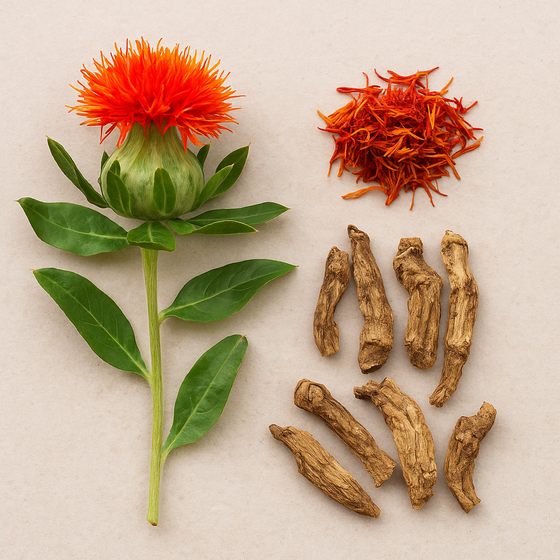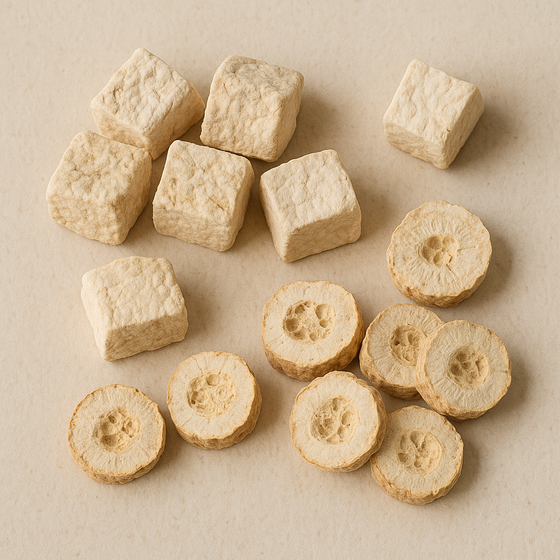
Saposhnikovia Root (Fang Feng, 防风) is a versatile herb in Traditional Chinese Medicine (TCM), known for dispelling wind, relieving pain, and resolving dampness without being overly drying. While best known for immune and respiratory support, its gentle anti-inflammatory and harmonizing effects make it useful in long-term wellness formulas—including those supporting prostate comfort and urinary balance.
From ancient wind-dispelling prescriptions to modern functional blends, Fang Feng remains a trusted botanical for restoring systemic harmony.
Recorded in the Shen Nong Ben Cao Jing, Fang Feng has been used to:
| Property | Description |
|---|---|
| Chinese Name | 防风 (Fang Feng) |
| Latin Name | Saposhnikovia divaricata (syn. Ledebouriella seseloides) |
| Nature | Slightly Warm |
| Flavor | Acrid, Sweet |
| Organs Targeted | Bladder, Liver, Spleen |
Contemporary studies highlight Saposhnikovia Root for:
Notable constituents include chromones (e.g., prim-O-glucosylcimifugin, cimifugin) linked to these activities.
Source: Pharmacological studies on Saposhnikovia divaricata – PubMed
Saposhnikovia Root (Fang Feng, 防风) brings gentle, balancing power to modern wellness. By easing inflammation, supporting the body’s defenses, and harmonizing formulas, it can complement prostate-support strategies focused on comfort, mobility, and long-term resilience.
Comments will be approved before showing up.
Gan Cao (Licorice Root, 甘草) is a harmonizing herb that balances the body, reduces inflammation, and supports the prostate. Used in nearly all classic TCM formulas, it soothes irritation, eases tension, and enhances overall synergy within herbal blends.
Hong Hua (Safflower, 红花) is a warm, acrid herb that invigorates blood, dispels stasis, and reduces pain. Traditionally used to enhance circulation and relieve inflammation, it supports prostate and urinary comfort through improved microcirculation.
Fu Ling (Poria cocos, 茯苓) is a mild yet powerful TCM fungus that helps clear dampness, support digestion, and calm the mind. Traditionally used to relieve urinary difficulty and edema, it’s a key herb for prostate comfort and inner balance.


